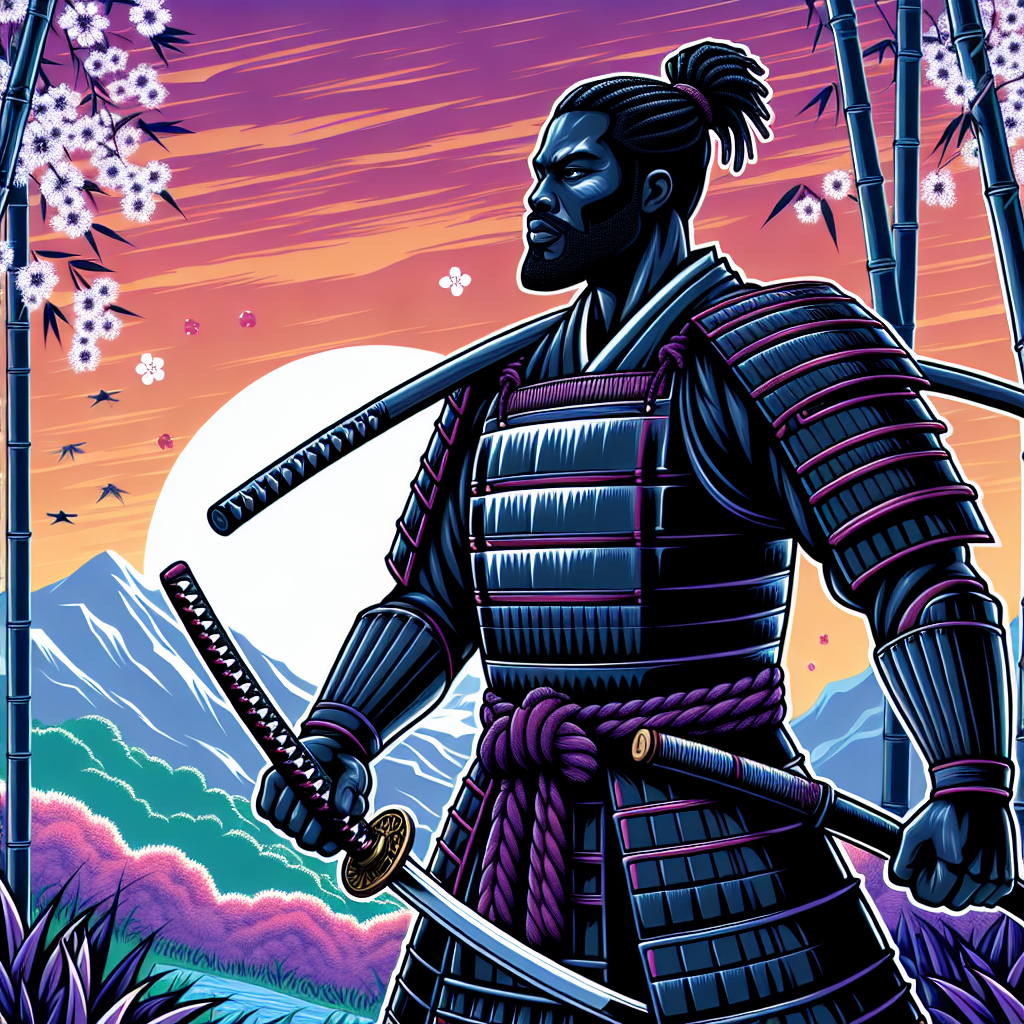Yasuke: The Unshakeable Black Samurai Who Made Waves in Feudal Japan
So, gather round and let us spill some tea on one of the most fascinating figures you’ve probably never heard of: Yasuke, the Black Samurai. Yes, you read that right—a Black man slicing through the samurai ranks way back in the 16th century Japan. Are we ready to debunk the fairy tale of homogenous history? Because Yasuke is here to do just that, wielding his sword and an epic backstory that screams representation, diversity, and sheer badassery. Seriously, if we can squeeze entertainers, furniture stores, and skincare routines into the history syllabus, why not our man Yasuke?
A Little Cultural Context
To truly appreciate this gem of a tale, we need to roll back the clock to Japan’s Warring States period—a time bustling with political chaos as samurai clans battled it out for supremacy. Picture this: knights of the East, using swords and strategy while sowing the seeds of what would become one of the world’s most iconic martial cultures. And then, along comes Yasuke, striding into the scene with the kind of presence that made folks do a double take. Spoiler alert: he wasn’t just another side character in this historical saga.
Who’s That Man? Yasuke, the Go-Getter
Now, let’s talk origins: Yasuke was likely of African descent—Mozambique, to be specific. How he arrived in Japan is a story for the ages; he started off as an attendant to Jesuit missionaries. One can only imagine the raised eyebrows when Oda Nobunaga saw him for the first time in 1579. This warlord was looking to unify Japan, and suddenly he had a towering Black man in front of him. Forget color coordinating; this was a full-blown cultural revolution waiting to happen!
After witnessing Yasuke’s extraordinary skills and larger-than-life presence, Nobunaga decided to roll the dice and welcome him into his inner circle. The man transformed from a servant into a revered samurai, which, let’s be real, is a plot twist even Shakespeare couldn’t have penned. Yasuke didn’t just break the mold; he threw it in the fire!
Storming the Samurai Scene
Imagine this: a 6-foot-tall warrior, slicing through the ranks of a vastly homogenous society. Yasuke’s rise wasn’t just a feel-good story; it was a full-blown disruption to what the samurai code stood for. Lore has it that during pivotal battles, Yasuke defended Nobunaga with a ferocity that solidified his status as a valued warrior. If loyalty and honor were the currency of feudal Japan, then Yasuke was riding high, defying all odds while rattling some notions about race and class.
Yasuke’s Impact and What It Means to Us
So, what does Yasuke’s journey tell us? It challenges the narrative that suggests greatness is confined to a single race or identity. While he faced hurdles due to his heritage, his life illustrates that true honor and loyalty know no color. Yasuke was a testament to the idea that inclusion is not just about seating arrangements; it’s about redefining what it means to be a samurai in a way that flips the script on cultural acceptance.
Yasuke: A Legacy Revived
After Nobunaga’s assassination in 1582, Yasuke faded into relative obscurity, much like a good movie that everyone forgets unless it gets a Netflix revival. But thankfully, his legacy is being reanimated in pop culture today—books, anime, movies—you name it. Yasuke is everywhere! And why shouldn’t he be? His narrative stands tall and proud, reminding us that diversity isn’t just a modern-day buzzword; it’s a reminder of our shared, multifaceted history.
Why Yasuke Matters Now More Than Ever
In today’s world, Yasuke symbolizes so much for the Black community and beyond. His life story shines a light on the need for representation in historical narratives. Monumental figures like him give us a platform to engage deeply with conversations about race, identity, and inclusion—not just in Japan but globally. It calls for an overhaul of how we think about culture—multiculturalism is not just a hip buzzword, folks; it’s a way of life!
So, the takeaway? Yasuke’s incredible journey reveals the strength and resilience of the Black community, and serves as a potent reminder that our histories are rich, diverse, and deeply intertwined. Instead of letting mainstream narratives do the talking, let’s rise together and shout Yasuke’s name far and wide. Celebrate him, embrace his legacy, and let’s demand that the tales of those like him are front and center in our history lessons. Because if we don’t tell our stories, who will?



0 Comments